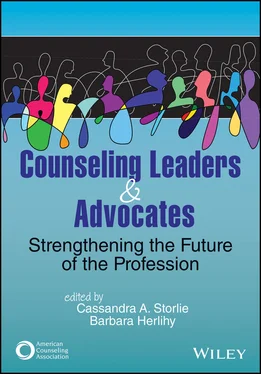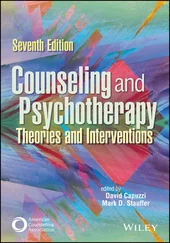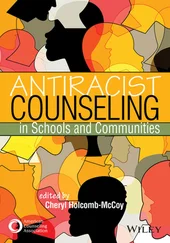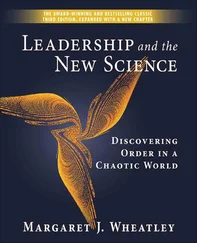Counseling Leaders and Advocates
Здесь есть возможность читать онлайн «Counseling Leaders and Advocates» — ознакомительный отрывок электронной книги совершенно бесплатно, а после прочтения отрывка купить полную версию. В некоторых случаях можно слушать аудио, скачать через торрент в формате fb2 и присутствует краткое содержание. Жанр: unrecognised, на английском языке. Описание произведения, (предисловие) а так же отзывы посетителей доступны на портале библиотеки ЛибКат.
- Название:Counseling Leaders and Advocates
- Автор:
- Жанр:
- Год:неизвестен
- ISBN:нет данных
- Рейтинг книги:5 / 5. Голосов: 1
-
Избранное:Добавить в избранное
- Отзывы:
-
Ваша оценка:
- 100
- 1
- 2
- 3
- 4
- 5
Counseling Leaders and Advocates: краткое содержание, описание и аннотация
Предлагаем к чтению аннотацию, описание, краткое содержание или предисловие (зависит от того, что написал сам автор книги «Counseling Leaders and Advocates»). Если вы не нашли необходимую информацию о книге — напишите в комментариях, мы постараемся отыскать её.
Counseling Leaders and Advocates — читать онлайн ознакомительный отрывок
Ниже представлен текст книги, разбитый по страницам. Система сохранения места последней прочитанной страницы, позволяет с удобством читать онлайн бесплатно книгу «Counseling Leaders and Advocates», без необходимости каждый раз заново искать на чём Вы остановились. Поставьте закладку, и сможете в любой момент перейти на страницу, на которой закончили чтение.
Интервал:
Закладка:
Alignment With the 2016 CACREP Standards
Accredited counseling programs help to support a unified counseling profession (Council for Accreditation of Counseling and Related Educational Programs [CACREP], 2015). As we continue to strive for this unity, which strengthens the future of the counseling profession, it is critical to attend to the standards that guide our counseling programs and curriculum. The 2016 CACREP Standards focus on the foundation of a strong professional identity that includes advocacy on behalf of the profession and initiatives needed to address systemic barriers that impede client success. Chapters 2and 3discuss counselor professional identity and the advocacy interventions that can address institutional and social barriers that affect clients.
Section 6 of the 2016 CACREP Standards clearly delineates “Leadership and Advocacy” as one of the five core areas of doctoral-level counselor education and supervision, and features that address many of these standards can be found throughout the text. We list the 2016 CACREP Standards that have been addressed in the text at the conclusion of each part. (CACREP standards are currently under revision, and new standards are scheduled to be released in 2024.)
Onward!
The next generation of leaders and advocates must embrace the complex issues facing our clients, the profession as a whole, and our national and global societies if we are to advance and continue to distinguish excellence in professional counseling. We hope this book inspires you to engage in leadership and advocacy opportunities as counseling continues to evolve. Perhaps one or more of the profiled leaders’ journeys will resonate with you and your story. Whether you are studying to become a counselor or counselor educator, beginning your career in counseling, or have been practicing for years, we hope this book will encourage you to examine the deeper meaning of your leadership and advocacy roles.

Chapter 2
Culturally Responsive Counseling Leadership
Cassandra A. Storlie, Christian D. Chan, and Michael Hannon
As is true with many works addressing multiculturalism and social justice in counseling, this chapter may take time to fully digest and understand in a way that empowers you to acknowledge yourself as a cultural being and reflect on ways you can incorporate culturally responsive counseling leadership in your practice. To become a culturally responsive leader, it is essential to have a historical understanding of the role of race, culture, and “otherness” within society and in our profession. We will not know where we are going if we don’t know where we have been. By striving for culturally responsive counseling leadership, you will embark on a journey in which you voluntarily accept both the privilege and the responsibility of intervening. Your leadership will help our profession become stronger and more inclusive, representing more diverse voices and combating systemic injustices. By becoming a culturally responsive leader, you will examine how intersectionality (Crenshaw, 1989) affects each of us and others, focus on challenging your worldview for unconscious bias, and move forward reflectively to ameliorate barriers to inclusion.
Racism. Prejudice. Sexism. Discrimination. Oppression. Microaggressions. Heterosexism. Poverty. These words represent concepts that have perpetuated inequities in the United States that affect our clients, our students, and even ourselves as privileged members of the counseling profession. There has long been a call for cultural awareness (Sue et al., 2019), cultural sensitivity (Whaley, 2008; Wright & Reese, 2015), and cultural competence (Ratts et al., 2016; Sue et al., 1992) in the counseling profession. These three terms are not synonymous; each has a well-defined meaning (Whaley, 2008). Taken together, they provide a foundation for cultural responsiveness and enable counselors to provide leadership in guiding socially just practices in unity for current and future counselors. Culturally responsive counseling leadership is enacted when professional counselors move beyond mastery of cultural knowledge to action-oriented approaches, concurrently engage in reflective evaluation for effective practices, and develop community and solidarity with marginalized groups.
Culturally responsive counseling leaders encompass four core characteristics: cultural awareness, culturally sensitivity, cultural competence, and cultural responsiveness (see Figure 2.1). Each of these characteristics is salient in the growth and development of our profession, and integration of these four characteristics is necessary to effectively lead others toward culturally responsive counseling.
The ethnic and racial makeup of the United States reflects a diverse population, and the number of Black, Indigenous, and people of color (BIPOC) has been growing by historic proportions (Pew Research Center, 2019). Since 2010, the “U.S. population increased by 18.9 million, and Hispanics accounted for more than half of this growth” (Pew Research Center, 2020). As the population of BIPOC increases, the disparities between White individuals and BIPOC have also increased on measures of mental/physical health and poverty/socioeconomic status. According to McGuire and Miranda (2008), “racial and ethnic minorities have less access to mental health services than do Whites, are less likely to receive needed care and are more likely to receive poor quality care when treated” (p. 396).
Racial and ethnic minority health disparities have become more evident during the coronavirus pandemic. Communities of color (specifically Black and Hispanic/Latinx) are disproportionately diagnosed with coronavirus and suffer more serious effects from the virus than White individuals (Centers for Disease Control and Prevention, 2020). Communities of color remain incessantly burdened with limited health care coverage (Buchmueller et al., 2016) and are more likely to live in low-income areas that are also engulfed in the pandemic of racial injustice (Rogers et al., 2015). Internalized racism and colonialism affect attitudes toward seeking help (David et al., 2019; Tuazon et al., 2019), and ethnicity has been identified as a relevant variable in mental health stigma (Crowe & Kim, 2020). As a result, racial disparities in health care may prevent BIPOC from participating in counseling services critical to their wellness. This pattern is often an outcome of cultural mistrust toward providers within the health care/mental health care system combined with culturally insensitive practices (Flynn et al., 2020; Sue et al., 2019). Scholars have made multiple recommendations to revise the latest version of the Diagnostic and Statistical Manual ( DSM-5 ) to enhance its cultural sensitivity and inclusion (Chang & Kwon, 2013; La Roche et al., 2015).
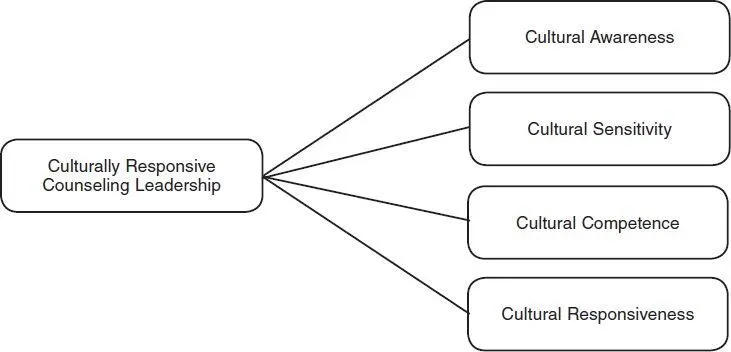
Figure 2.1 Culturally Responsive Counseling Leadership Characteristics
As the authors of this chapter and persons of color, we recognize that the terms diversity and culture expand beyond race and ethnicity. Historically, we have witnessed discriminatory practices in our society related to a variety of “isms” that represent “otherness” and affect oppressed populations including, but not limited to, women, the LGBTQ+ community, individuals with visible and invisible disabilities, immigrants without documentation, older adults, and Indigenous populations. As counselors, it is paramount that we believe and behave in ways that align with the Code of Ethics of the American Counseling Association (ACA; 2014):
Читать дальшеИнтервал:
Закладка:
Похожие книги на «Counseling Leaders and Advocates»
Представляем Вашему вниманию похожие книги на «Counseling Leaders and Advocates» списком для выбора. Мы отобрали схожую по названию и смыслу литературу в надежде предоставить читателям больше вариантов отыскать новые, интересные, ещё непрочитанные произведения.
Обсуждение, отзывы о книге «Counseling Leaders and Advocates» и просто собственные мнения читателей. Оставьте ваши комментарии, напишите, что Вы думаете о произведении, его смысле или главных героях. Укажите что конкретно понравилось, а что нет, и почему Вы так считаете.
